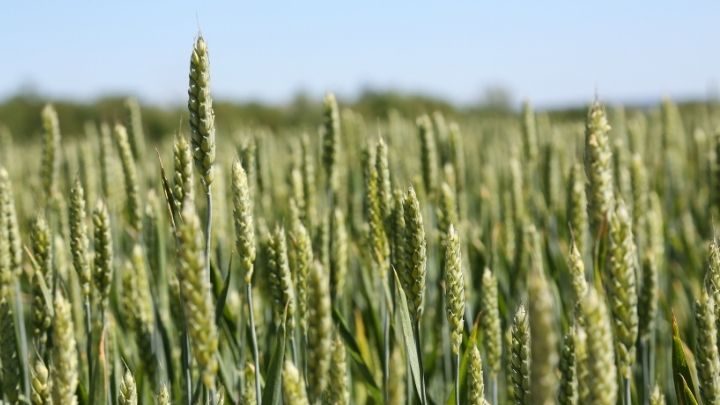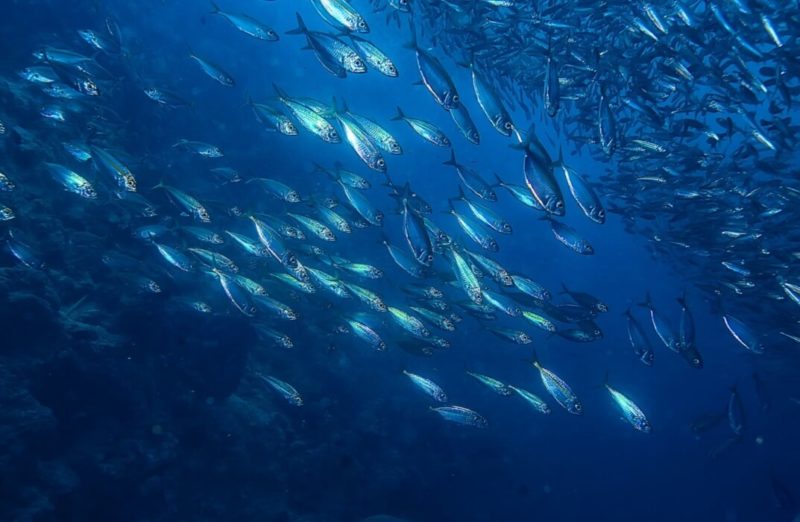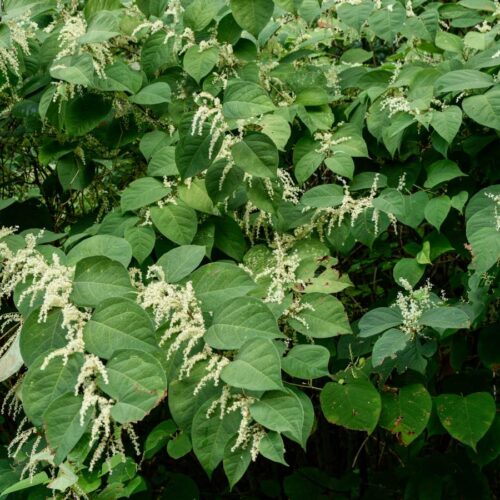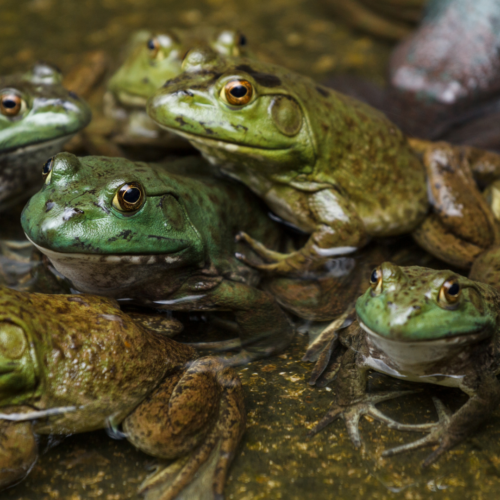The importance of biodiversity and its fragile condition are often talked about in the media, frequently in relation to climate change and pollution threats. But what is biodiversity? It is often defined as the variety of life found in a place on earth or the total variety of life on earth [1]. But biodiversity should not be thought of as simply a collection of animals and plants, it must be seen as a connected net of living beings, from bacteria to top predators, and the variety of trophic levels, habitat niches etc… It is, therefore, something incredibly complex.
Life on our planet is in a balance, and the higher the biodiversity, the more stable this balance. If an element is deleted from the equation, the consequences can be much more significant than the disappearance of that single species; the loss of a keystone species could lead to a cascade of extinctions and the deterioration of an entire ecosystem. For instance, when sea otter’s population drops then sea urchins, one of their favourite prey, are able to thrive and their population rises, increasing the pressure on kelp, their main food source. This in turn threatens other species that depend on kelp forests [2], leading to an imbalance in the ecosystem and further biodiversity loss.
But why is biodiversity so important for us? Why should we be concerned about some species disappearing?
To answer these questions, we must know about biodiversity services: the specific and direct benefits biodiversity has for humanity. Among those, the most important services are food security, disease protection, provision of livelihoods, and climate change protection.
Biodiversity and food security
Nutritionists advise us to have a varied and balanced diet for a long, healthy life and to achieve that we need a safe supply chain of food. Every region of the world has its own variety of vegetables that have adapted to the local conditions, which make them more resilient to disease and easier for humans to grow. In current times, wheat, corn, and rice are the most common crops in the world and provide almost 60% of the plant protein consumed by humans, but the multiple local varieties of these grains have been substituted over the years for just the most productive ones [3], sometimes resulting from genetic modification. This reduction in a crops’ genetic pool can decrease their resilience to disease, and ultimately affect food production.
Loss of biodiversity in food sources can also affect human health, since modern simplified diets based on just a few grains increases the risk of nutrient deficiency. The more diverse our diet, the better, as some studies show there is a link between a balanced diet and good intestinal health and a healthy immune system [4,5].
Additionally, a soil of good quality is crucial for crops to grow well, which is dependent on a range of interconnected bacteria, fungi, algae, and small invertebrates that constitute the soil fauna biodiversity [6].
Biodiversity and disease protection
Since ancient times, plants and other natural substances have been used to treat illnesses and different health conditions. There are many modern drugs that depend on natural species to be manufactured or that have been synthesised after research on a natural compound. One of the most well-known is salicylic acid (aspirin), less known is that 70% of modern cancer drugs have a natural origin4. There are species yet to be discovered in the world, therefore we could be losing undiscovered new medical treatments due to biodiversity loss. Scientific studies show that biodiversity loss frequently increases disease transmission and may even increase the chance of new diseases for humans, as infectious diseases jump from non-human animals to humans [7].
Biodiversity benefits business
Livelihoods and business are essential for a healthy and sustainable community and much of the global economy relies upon nature, from agriculture to forestry to fisheries and aquaculture. This biodiversity service is closely related to food security, as millions of people around the world work to provide plant and animal products for our diet [4]. Agriculture, forestry, fisheries and aquaculture all depend on millions of wild species to keep being productive and sustainable [8].
A more obvious way that biodiversity affects the economy is ecotourism, which is increasing in popularity every year and not only raises awareness about biodiversity protection, but also brings capital back to the region where the activity takes place [3]. Contrary to the old idea that conservation works against the economy, there is a new understanding that the expense of implementing biodiversity policies are an investment and a way to create new business opportunities while protecting ecosystem health.
Biodiversity can help against climate change effects
Climate change is a “monster with multiple heads”, with changes in climate by extension affecting much more, such as food security, disease dissemination, economic activities, livelihoods, etc. Rising temperatures are already altering the distribution of species, among them some disease vectors [9]; scientific evidence suggests if we intend to reduce the prevalence of these infectious diseases, it is necessary to preserve ecosystems and their biodiversity [7].
As the climate is becoming more unstable, sudden extreme events are more common, like floods, storms, and droughts. Nature already has some protection against these climate change consequences, for instance, coastal wetlands (salt marshes, seagrass, and mangroves) help protect shorelines from storms by attenuating wave action and buffering oncoming winds [10]. Coastal wetlands are also particularly efficient at storing carbon long-term by exporting it to deeper layers of sediment, acting as a carbon sink and avoiding its release into the atmosphere [11]. Therefore, the loss of these coastal ecosystems would amplify the effects of climate change, as well as being a huge loss to biodiversity.
The oceans are the champions of biodiversity
Marine environments are the foundation of a healthy planet, as they are the main source of the planet’s biodiversity and consequently provide all the biodiversity services outlined above. The fishery and aquaculture sectors are integral to our food security, as well as forming the livelihoods of millions of people. Many marine species are being investigated as sources of compounds to fight disease, and marine ecosystems can mitigate the effects of climate change more than any other.
Biodiversity benefits are tangible, quantifiable and multiple. We know more about them every day but there is still much to learn, especially about their connection to human activities. What stakeholders agree on is that more and improved programs and policies to protect biodiversity are needed, as soon as possible and particularly in the marine environment [7,12]. We all depend on natural ecosystems and the more biodiverse they are, the better their services will be, which will be reflected in our economy, welfare, and health.
Author: Loreto Gestoso Suarez
References:
(1) https://www.britannica.com/
(2) https://sciencing.com/happens-something-food-chain-goes-extinct-18214.html
(3) https://www.weforum.org/agenda/2020/05/5-reasons-why-biodiversity-matters-human-health-economies-business-wellbeing-coronavirus-covid19-animals-nature-ecosystems/
(4) Ruiz Alvarez, Vladimir & Puig Peña, Yamila & Acosta, Mireida. (2010). Microbiota intestinal, sistema inmune y obesidad. Revista Cubana de Investigaciones Biomedicas. 29. 364-397.
(5) Zou, Yixin & Yu, Haifei & Zhang, Li & Ruan, Zheng. (2021). Dietary Vegetable Powders Modulate Immune Homeostasis and Intestinal Microbiota in Mice. Foods. 11. 27. 10.3390/foods11010027.
(6) https://sciencing.com/list-6177330-benefits-biodiversity-.html
(7) https://www.nature.com/articles/nature09575
(8) https://conservationtools.org/library_items/1057
(9) https://www.cbd.int/doc/health/cohab-policy-brief1-en.pdf
(10) https://data.jncc.gov.uk/data/586618ac-a29d-488b-9beb-2d8fb61bb0c1/wood-the-role-of-mangroves-in-coastal-protection.pdf
(11) Ramachandran, Ramesh & Banerjee, Kakolee & Paneerselvam, A. & Raghuraman, R. & Ramachandran, Purvaja & Lakshmi, Ahana. (2019). Importance of Seagrass Management for Effective Mitigation of Climate Change. 10.1016/B978-0-12-810473-6.00015-7.
(12) https://royalsocietypublishing.org/doi/pdf/10.1098/rspb.2021.1631











